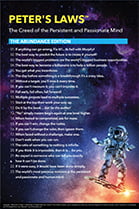
Women’s reproductive longevity is perhaps the most important understudied field of medicine. And its link to our lifespans is unmistakable.
Did you know that women who undergo menopause later in life tend to live longer? Well guess what: so do their male siblings.
Particularly if you’re a man, women’s reproductive longevity may seem totally irrelevant to you.
But increasingly, ovaries are considered the “canary in the coal mine” for human aging, showing signs of aging decades before other tissues.
While vastly understudied, ovarian aging and its causes are on the cusp of offering us groundbreaking insights on why we age in general.
But perhaps more importantly, the implications for women’s health and longevity are game-changing.
That’s why in 2 weeks, world-renowned scientist Dr. Jennifer Garrison, PhD and I will be hosting a webinar to discuss everything you didn’t know about Reproductive Longevity, WHY YOU SHOULD CARE, and how you can stay on the cutting-edge of this fast-growing novel field.
RSVP here or send this blog to someone who could benefit!
Whether you’re undergoing menopause or well past it… a young woman making critical decisions about your career vs. family… a couple trying to get pregnant… or you’re considering the trade-offs of hormone replacement therapy…
Whether you’re a husband, brother, son, or father to women who matter in your life... Or simply a man interested in your own lifespan…
This is relevant to you. So let’s dive in...
Children born today are expected to live to be 100 years old. Half of these children (females) will spend more of their lives after menopause than before it.
But this isn’t necessarily good news.
While we still have much to understand (meaning: research to fund), menopause unleashes a cascade of negative health effects in women, impacting everything from bone health to cognitive and cardiovascular function to immune strength. An experience that many reading this blog may be all too familiar with.
But reproductive longevity is far bigger than just menopause and its accompanying mortality risk.
It involves a woman’s entire life experience, her career, her family, and most importantly, her health and well-being— all inextricably linked to and impacted by reproductive biology.
Today, women in their mid-thirties are considered “geriatric mothers” because fertility begins to dip drastically at this time. By forty, women only have a five percent chance of becoming pregnant in any month.
The personal and societal costs are enormous.
Even in an age of accelerating scientific advancements, today’s narrative of female reproduction sets a finite limit to the time period of fertility, which ends far sooner for women than for men. And this “ticking clock” of fecundity has forced women to make difficult decisions between families and careers.
Let’s unpack the timeline of female fertility.
While men generate millions of new sperm each day, women begin losing eggs before they even exit the womb.
Beginning with about 7 million eggs at 26 weeks of gestation, females are born with about one million eggs, reaching 300,000 at puberty, 25,000 by age 37, and 1,000 by age 51.
Yet egg quality also declines with age. After age 35, chromosomal abnormalities in eggs increase by 0.5% each month. So a woman in her early 40s will likely have abnormalities in three-quarters of her remaining eggs.
But there’s no fundamental biological reason this needs to be the case.
In fact, humans are only one of five species that even undergo menopause. The other four live underwater.
Reproductive freedom aside, leaps in human lifespan are dramatically changing the way we structure our lives, our family-planning timelines, the duration (and even number) of our careers...
Prior to the 1960s, women in America, on average, gave birth to their first child at age 21. By 2017, that average age had leapt to 30 in OECD countries. With the advent of birth control, reproductive decisions have become untethered from fertility. Yet the inescapable endpoint of fertility — menopause — still looms.
Still, research about the effect of women’s reproductive span on overall health and longevity has been gravely underfunded, despite its unmistakable links to lifespan.
In fact, systemic sex bias in biomedical research has long been acknowledged, yet it was only 5 years ago that the National Institutes of Health (NIH) required grant recipients to include both sexes in their studies.
This means that prior to 2016, preclinical research spanning half a century was conducted primarily in males. As a result, we know far less about how today’s repertoire of common drugs interacts in female patients.
But aside from the benefit of studying how common pharmaceuticals impact and interact with women’s health, we have a tremendous amount to gain from understanding the progression of the female reproductive span.
Studying ovarian aging alone could unlock revolutionary discoveries about aging in other human tissues and how we might reverse or slow its progression.
The science of reproductive longevity is just now starting to take off. Not only does it have the potential to dramatically amplify women’s freedom to chart their trajectory, improve their health, and enjoy a high quality of life well into old age…
It could also be the single-most unexplored key to unlocking the secrets of aging.
Join Me on June 16th
Everything You Didn’t Know About Reproductive Longevity: On June 16th (in just two weeks), I’ll be speaking with Dr. Jennifer Garrison, PhD, Faculty Director of the Global Consortium for Reproductive Longevity & Equality, Assistant Professor at the Buck Institute for Research on Aging. We’ll be covering all the above topics, answering your burning questions, and more….
RSVP HERE!!

About the Buck Institute: The first independent biomedical research institute dedicated solely to aging and age-related disease, the Buck has brought together many of the world’s leading aging scientists over 20 years.
Touting an unparalleled evidence-based approach to its research, the Buck aims to end the threat of age-related disease for this and future generations.
The Buck has one of the greatest cultures of academic integrity and mission-driven enthusiasm of any research institute I’ve seen, and has now brought together a global consortium (across MIT, Harvard, National University of Singapore, Stanford to name a few) of researchers to address the glaring gaps in our understanding of women’s reproductive health.
The Buck’s new Center for Reproductive Longevity and Equality is tackling these challenges head-on, reframing women’s health to encompass both reproductive span and longevity, and striving to help women globally maximize health from the womb to long after menopause.
To learn more, see the Buck Institute’s excellent white paper, The Unspoken Truth.
This initiative, by focusing research on understanding how and why women go through reproductive decline in mid-life, particularly in the context of human aging biology, has the potential to dramatically and significantly improve the health and well-being of women worldwide. We aim to balance the inequalities women face managing family, career and health decisions. Understanding the limits on mammalian female reproductive capacity will provide important clues about aging in other tissues.
Join My Abundance360 CommunitY
If developing a Longevity Mindset and tracking the latest health breakthroughs is important to you, then consider joining my year-round Abundance360 coaching program.
Every year, my team and I select a group of 360 entrepreneurs and CEOs to coach over the course of a year-long program. You can join at any time for a full year’s worth of personal coaching on Exponential Tech, Longevity, Moonshots, and Abundance thinking.
My mission is to help A360 members obtain mastery in four specific Mindsets: an Abundance Mindset; an Exponential Mindset; a Moonshot Mindset; and a Longevity Mindset. Together we will actively select and reinforce your preferred Mindsets.
Topics: Abundance Entrepreneurship Exponentials Longevity Abundance 360 Platinum Trip Abundance Platinum Women's Health Buck Institute







